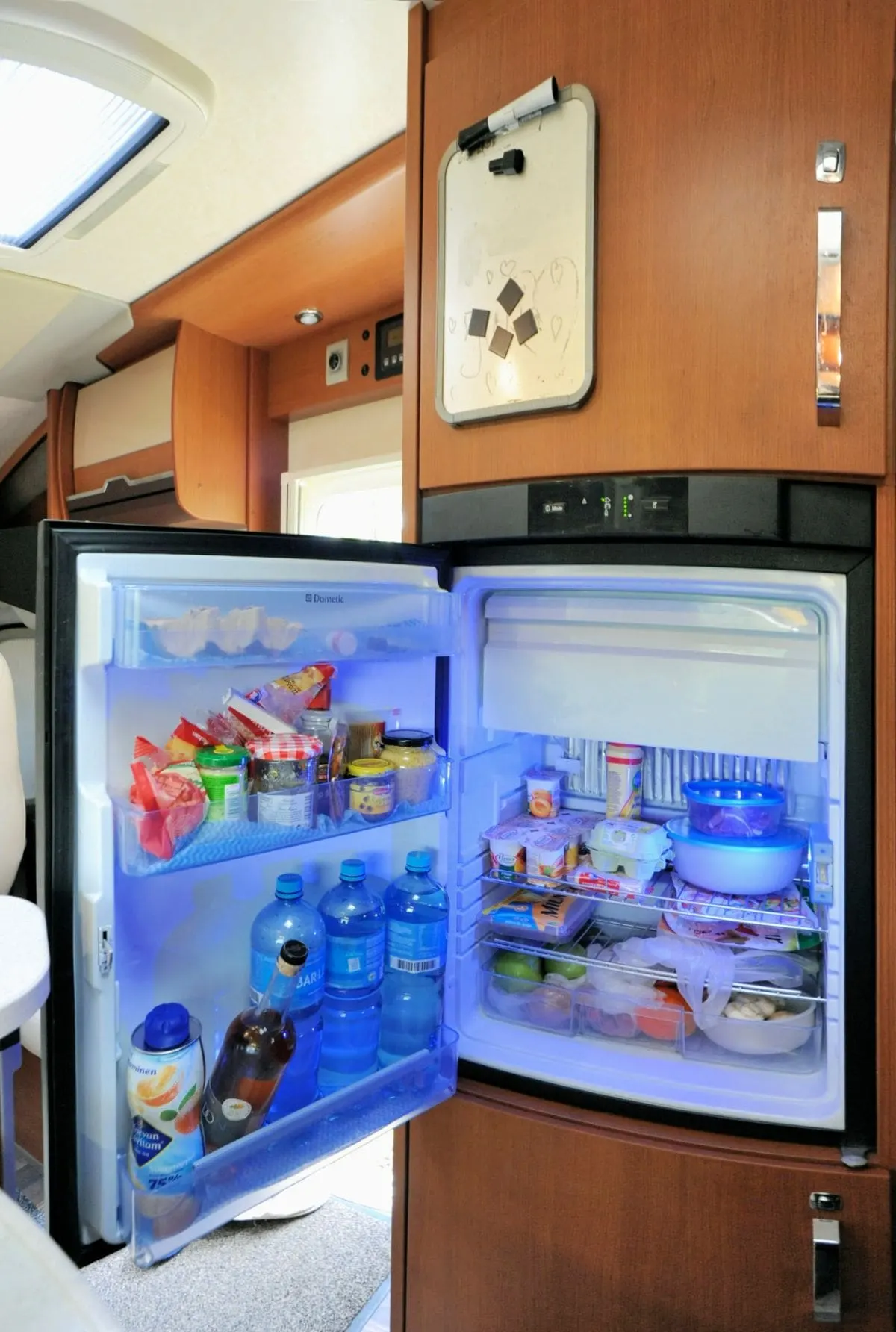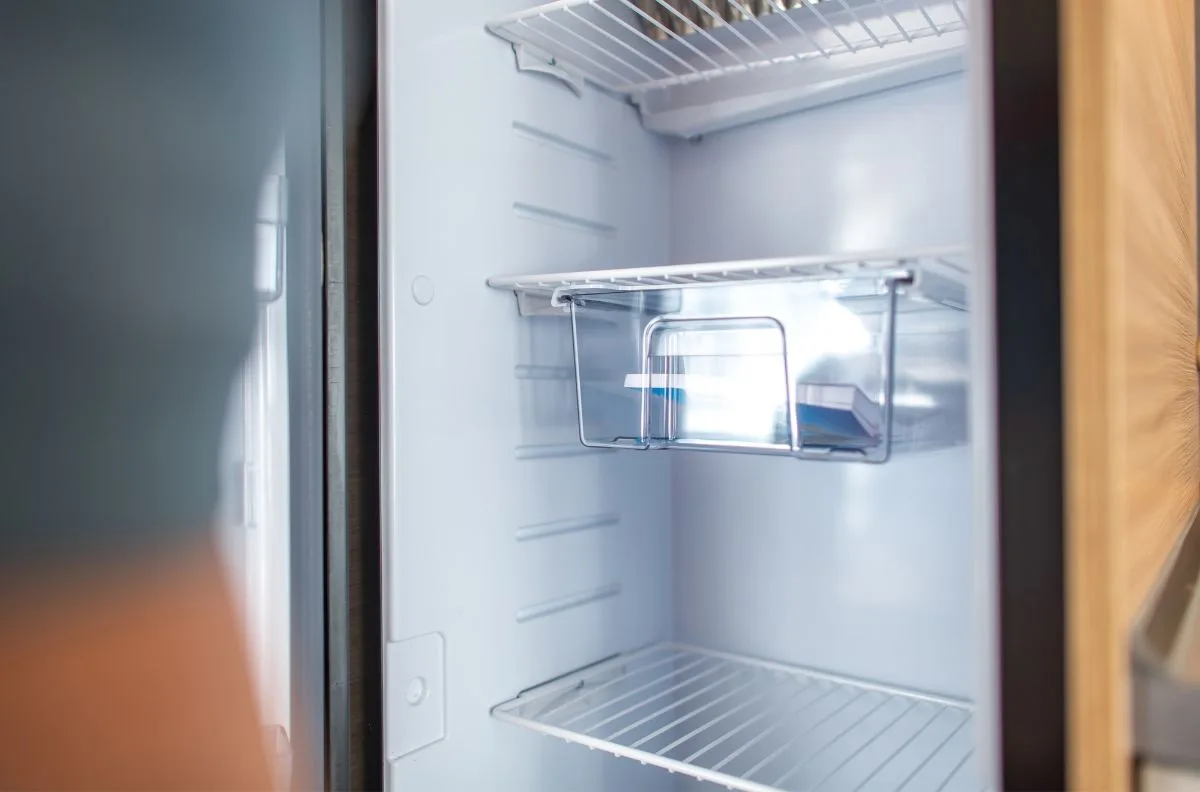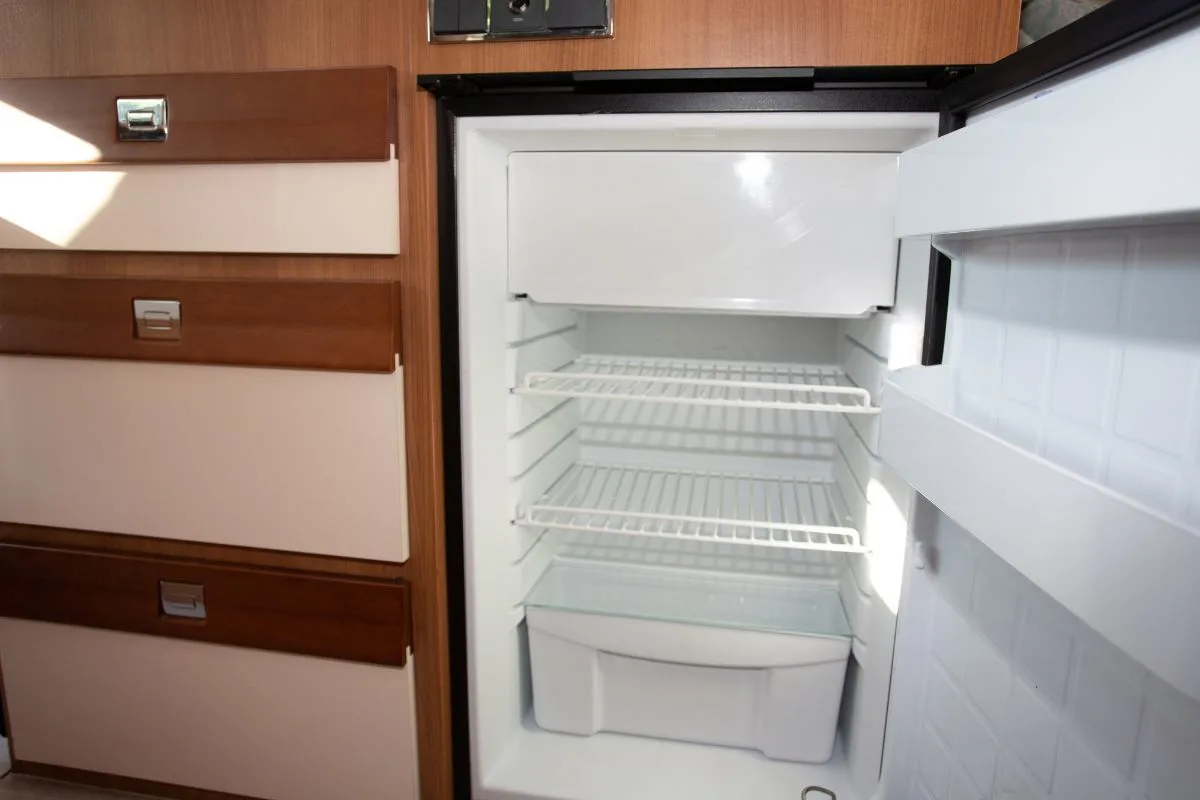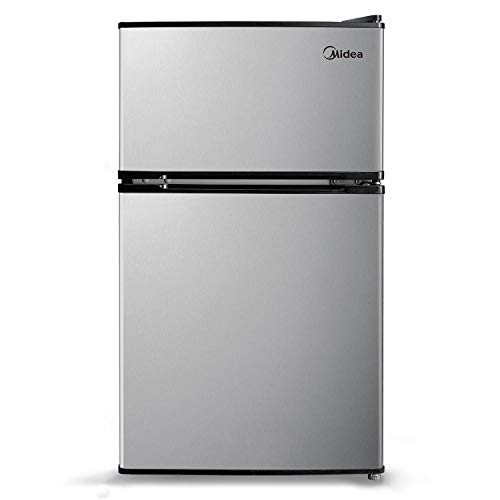
The RV industry has seen consistent growth every year since 2009. This is such that in 2020, Forbes dubbed the year, “The Year of RV Travel.”
Contributing to this growth over the years has been my family. Since my great-grandpappy, purchasing an RV has been a rite of passage in our family. Last fall, after much scrapping, belt-tightening, and saving, I am happy to report that I finally reached that milestone.
Excitedly, I took the RV to Gramps for his approval. After his initial congratulations, however, on inspecting the RV’s exterior and interior, Gramps suddenly became crestfallen.
“I am afraid you can’t be initiated into the family’s Hall of Men just yet, sonny!”
“Why, why not old-timer?” I enquired, shocked by Gramps’s declaration.
“It’s your RV, sonny, it doesn’t have an RV refrigerator” informed the old-timer.
“An RV refrigerator? What’s that like, why, and what type, grandpa? Tell me more, please” I begged. Such was my desperation to be inducted into the family’s Hall of Men!
Gramps’s eyes lit up. Here was an opportunity for one of his GLLs (Gramps Love Lectures) and the sagacious old-timer grabbed it.
Sonny, every RV requires an RV refrigerator for your rite to be right.
Since the advent of van life, recreational vehicles, or RVs, are one of the most convenient ways to travel and camp. RVs are arguably the most efficient way to put your whole life on wheels.
They are also one of the best ways to travel the country at your convenience. As such, most RVs come equipped with modern home comforts, such as a kitchen, dining area, and even a bathroom as standard or an optional add-on.
However, with soon-to-be retirees like you, Sonny, who will soon be switching from traditional homes to an RV, an RV refrigerator has become an essential standard requirement for any RV you purchase-and for your initiation into the Hall of Men.

As you well know, a refrigerator is a device used to store food, drinks, and other goods at a temperature below that of a home kitchen. However, unlike a domestic refrigerator, an RV refrigerator has a compact design and, usually, does not take up too much space.
It has an onboard battery to keep the fridge running when there is no power and can be used to store food and drinks while camping. Normally, an RV refrigerator has a 6.5 cubic foot capacity, enough to hold up to five gallons of milk or six cans of soda.
A made-for-RV type refrigerator chills food by using a process called “Absorption Refrigeration”. This requires no mechanical moving parts to make the cooling happen.
Instead of a compressor motor, absorption refrigerator units rely on a gravity-fed chemical cycle of water, ammonia, hydrogen gas, and sodium chromate. The mixture makes its way through pipes in the refrigerator’s body, ultimately keeping the inside of the refrigerator cool.
Most RV refrigerators come with an electronic thermostat that can be set to any temperature. It has a front panel that is made of tempered glass. There is also a recessed handle and the door opens up to 180 degrees.
As the “recreational” in RV implies, there can be no recreation without somewhere cool to keep food and drinks fresh and cool. Having an RV refrigerator ensures you combine the leisure and comforts of home with the freedom of travel.
With an RV refrigerator installed, your ability to set up camp near wilderness areas and less populated towns is maximized.
The biggest bonus with an RV refrigerator is that the option to prepare, cook (no need to eat at crowded restaurants), and refrigerate meals independently while on the move is further enhanced. An RV refrigerator literally permits you to have your cake and eat it, too.
But for an RV refrigerator to be able to add all this to your RV life, you need the right type of RV refrigerator.
Here are the Types of RV Refrigerators Currently on the Market.
RV refrigerators are categorized based on the type of power source running the fridge. This has given rise to different types of RV refrigerators. These include the….
1. Propane RV Refrigerators/2-Way RV Fridges-Prioritizing them doesn’t mean they are the best.
Generally speaking, most motor-homes and trailers come equipped with 2-way RV fridges that operate on what’s known as “Two-Way Power.” These refrigerators function on either a 110V electrical supply or propane gas.
Put simply, they can be run on propane, while also offering the option of shore power, which can also be run on DC power directly from the house batteries.
Two-way powered RV refrigerators are made by some manufacturers. Most manufacturers offer gas absorption RV refrigerators in sizes ranging from portable coolers to apartment-sized capacities up to 17 cubic feet.
These RV refrigerators are great for a variety of reasons. For example,
- Plugging into a 120V power supply provides more consistent cooling power than propane.
- LP gas enables your RV to be completely self-sufficient, enabling you to travel anywhere.
- The main advantage of these traditional RV refrigerators is their versatility.
- At a campsite with electricity provided, you can plug them in and take full advantage of the electricity or,
- You can switch over to propane mode should you be boondocking or without power. This is vital for those campers like me who camp off-grid often.
- The availability of cool food without the use of a power connection is ideal for RVers. It makes real the idea of taking all the comforts of home on your road trips.
However, while propane refrigerators are ideal for RV life, they can also be frustrating and annoying. For instance,
- You have the ever-present risk of fire if you choose to operate the RV refrigerator on propane while traveling.
- On hot days, propane RV refrigerators cannot regulate temperature fast enough. This is especially true at higher altitudes, as well as when the unit is packed so full of food. In such cases, the air can’t circulate properly.
- Add to this the fact that these refrigerators tend to sometimes freeze foods kept on certain shelves if the outside temperature is cooler.
To reduce some of these issues,
- install a small fan behind the unit to keep the air moving.
- defrosting the fins at the back of the fridge.
- replace the seal and door gaskets around the door.
That as it may be, there are more disadvantages of RV propane fridges that are just too hard to overlook.
The can’t be overlooked consistent cons of Propane RV Refrigerators.

Very Expensive
Depending on the depth of your pockets, RV propane fridges are costly to purchase and replace. These RV-specific appliances are incredibly expensive and not so easy to come by. Meaning importing and paying for shipping a very heavy item. Having it installed will cost you too.
Less Food Space
The bulky backsides of propane refrigerators mean smaller food storage space. Considering how strapped for space RVs already are, this is a pretty annoying inconvenience. However, it’s not one that can’t be rectified-by extra grocery shopping trips and some “fridge Tetris” packing.
For most, it is because of such reasons, and the mere fact that propane RV fridges just do not measure up to residential refrigerators’ temperature control capabilities, that they are turning to the residential refrigerator for their RVs.
Consequently, many people are deciding to have an additional alternative power source for their RV’s fridge-leading to 3-Way RV Fridges.
2. Then there were three power-sourced 3-Way RV Fridges.
Sometimes an RV might even have a 3-way RV fridge. Such RV refrigerators run “three-way power”, meaning that in addition to 120V conventional power and LP gas, three-way RV refrigerators also utilize 12V power produced by the RV’s batteries to run the unit.
These 12V RV refrigerators offer big advantages for campers in small vehicles like pop-ups, truck-bed campers, and vans. For example:
- The absence of combustible refrigeration chemicals eliminates the risk of fire or explosion.
- Their small size enables them to be installed in tight spaces.
- They are safer when you’re traveling because your vehicle’s battery provides the power.
- They can operate safely at up to a 30-degree slope.
- Most models are produced with a chest-freezer design that keeps food colder and is more energy-efficient than front-facing refrigerator designs.
- With fewer parts and systems, these 12V refrigerators can last longer-up to 25 years or more.
These reasons are the heart of why battery-powered refrigerators have been used in the marine and trucking industry for decades. Another enthusiastic audience is off-grid living aficionados, who love DC-powered refrigerators for remote locations.
And although they have a long-standing reputation for being energy hogs that can quickly kill a vehicle battery, they are now more efficient than ever with newly built-in technologies and sensors that help prevent dead batteries. They can be completely powered by a cabin’s solar power system.
However, that is not to say they don’t come with their own set of problems. Despite the advantageous qualities of 12V refrigerators, you still won’t see them in conventional, larger RVs.
That’s because anything larger than a small cooler-sized model requires a battery bank that’s far bigger than most people can afford or would be willing to carry around.
Consequently, many people are deciding to shift to residential-style refrigerators in their RVs.
3. Residential-style RV Refrigerators
Nowadays, some manufacturers are now offering residential-style refrigerators for RVs as a factory option.
These residential-style appliances are largely affordable. They cost hundreds, sometimes thousands of dollars less than their RV-specific counterparts. In the long run, fixing a residential refrigerator is almost always less expensive than fixing an RV fridge.
Another major benefit of residential-style RV fridges is the fact they have more storage space. The inner workings of these units are less bulky, allowing manufacturers to create larger food storage areas.
Generally, residential-style fridges are better at controlling the temperature of your food. They cool more effectively and rarely freeze items when it is cooler outside.
They are most ideal for those willing to stick to RV parks with electric hookups.
Of course, residential fridges have their own set of pros and cons. For starters, they are not necessarily ideal for every RV out there.
Real residential-style RV Refrigerator Cons Concerns and how to get around them
Amongst the biggest drawbacks of a residential-style RV refrigerators are that
- They cannot be used without a good amount of electricity.
- boondocking becomes more difficult
- Those wishing to camp off-grid will not be able to do so.
- Creating a setup that can run an all-electric RV fridge is complicated and costly.
- Putting together such a setup means investing in a new 2-way or 3-way fridge.
- Such a setup will only keep you running for a few hours.
That said, if you really want a residential-style RV refrigerator, how can you overcome the pitfalls of the residential fridge while taking advantage of the benefits they offer?
Well, finances and expertise permitting, you could,
- Create a setup that can support your fridge when shore power is unavailable.
- build a power bank of batteries using lithium batteries for this purpose as they charge more quickly, hold a charge longer, and discharge further without damage.
- Couple your power bank with a “pure sine” inverter to convert the electricity stored in your battery bank for use by the fridge.
When Gramps seemed through with his LL, I posed a few questions to him before going to buy my Hall of Men RV refrigerator. Besides, Gramps simply loves post-GLL questions.
RV Refrigerator Frequently Asked Questions (FAQs)

Q. When it comes to RV fridges, what is GVWR?
A: Your RV’s Gross Vehicle Weight Ratio is another major factor to consider. Can your existing RV carry the additional weight of a residential refrigerator? If your RV is a towable trailer or fifth wheel, factor in the increased weight that your tow vehicle will need to pull before you ever head to Home Depot for that apartment-sized refrigerator.
Q. Is it better to run the RV fridge on propane or electric?
A: Generally speaking, propane-powered RV fridges are preferred as they don’t require lots of maintenance, and they last longer as they don’t have any moving parts. An electric fridge on the other hand, is a bit safer and doesn’t require you to be on the lookout for gas leaks.
Q. Should I leave my RV refrigerator on all the time?
A: Ultimately, it’s possible to keep your RV refrigerator running all the time if you don’t go anywhere. However, if you’re intent on travelling, then powering down and disconnecting it from the power supply or propane source is best.





